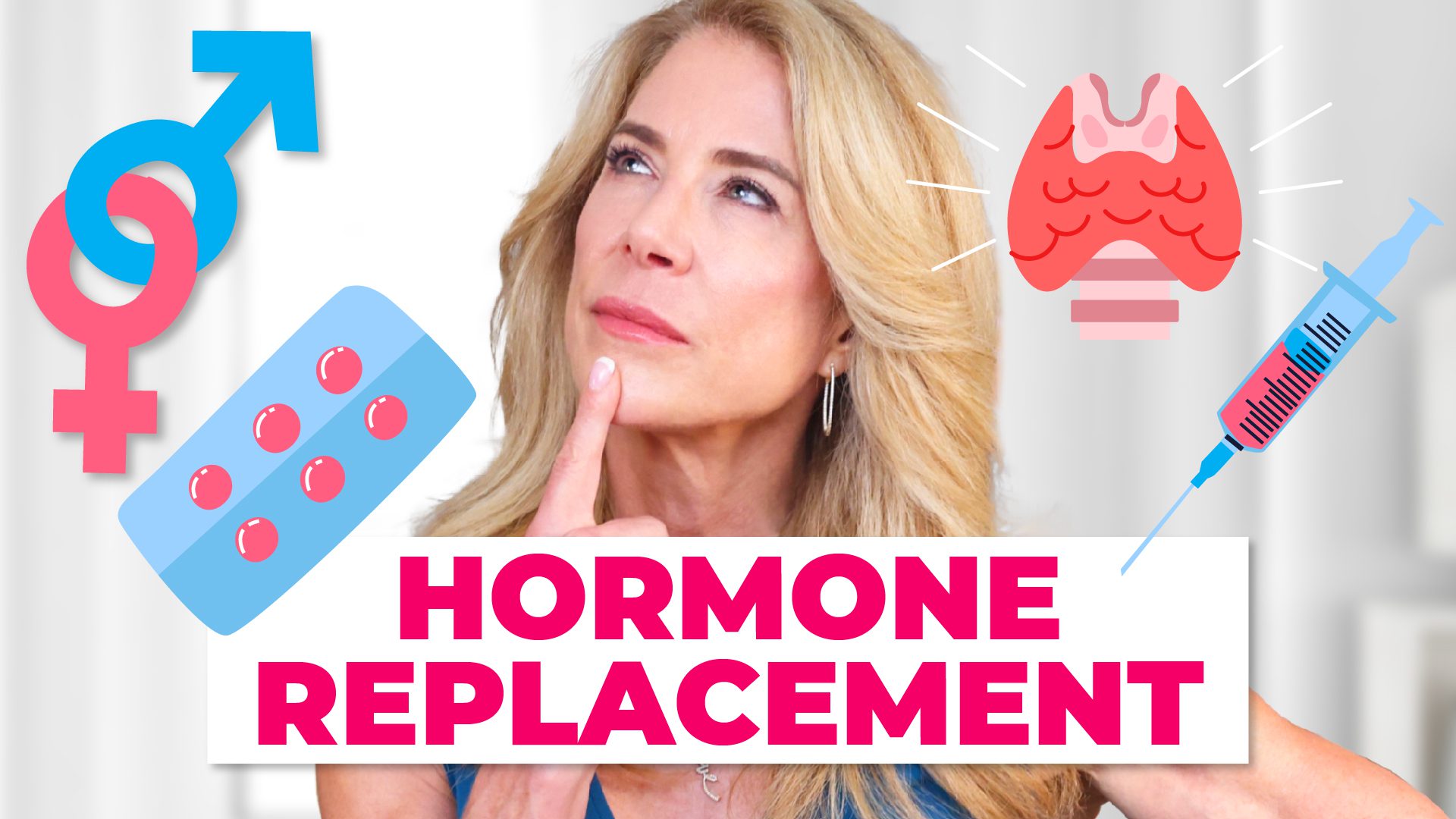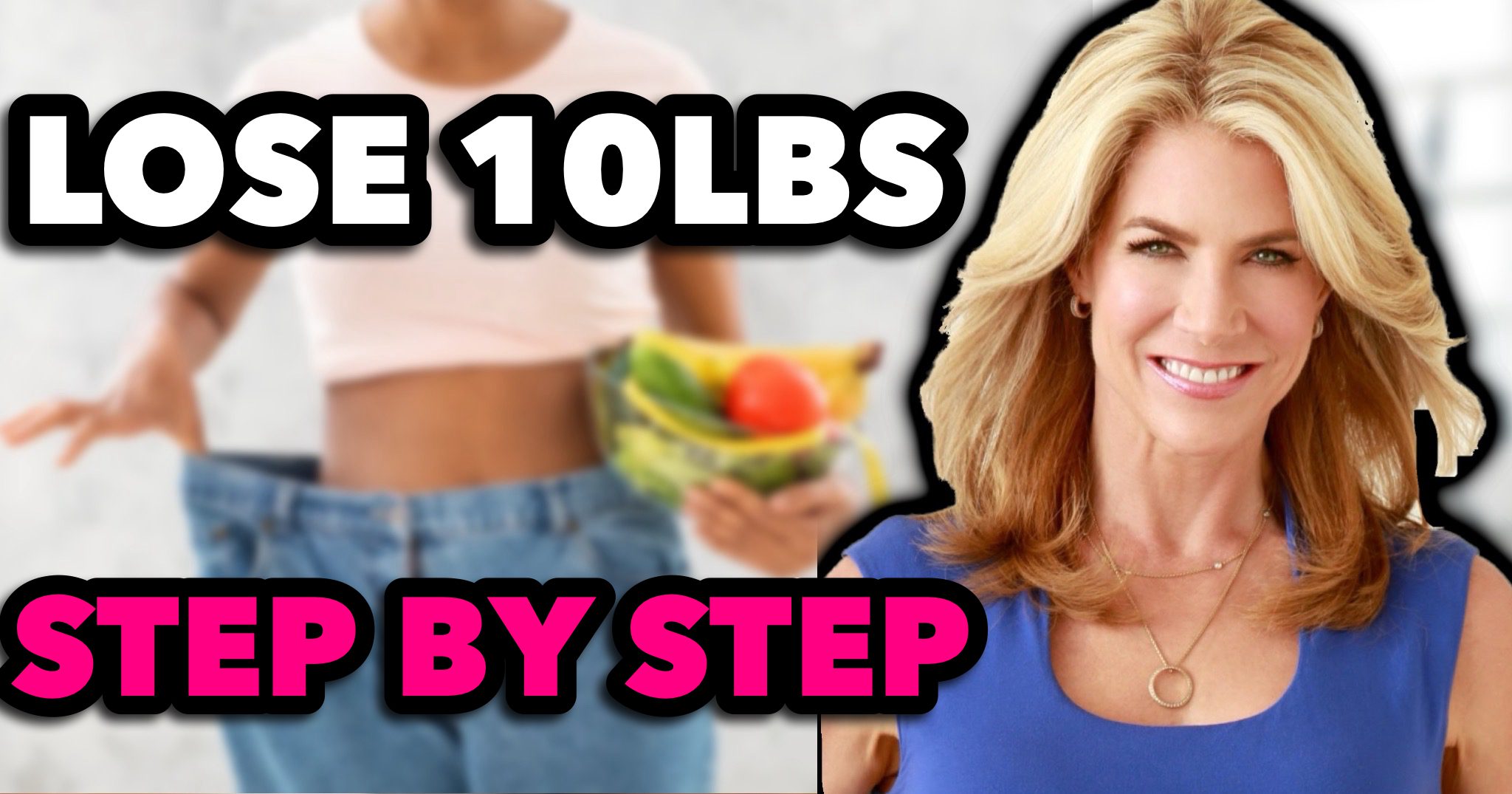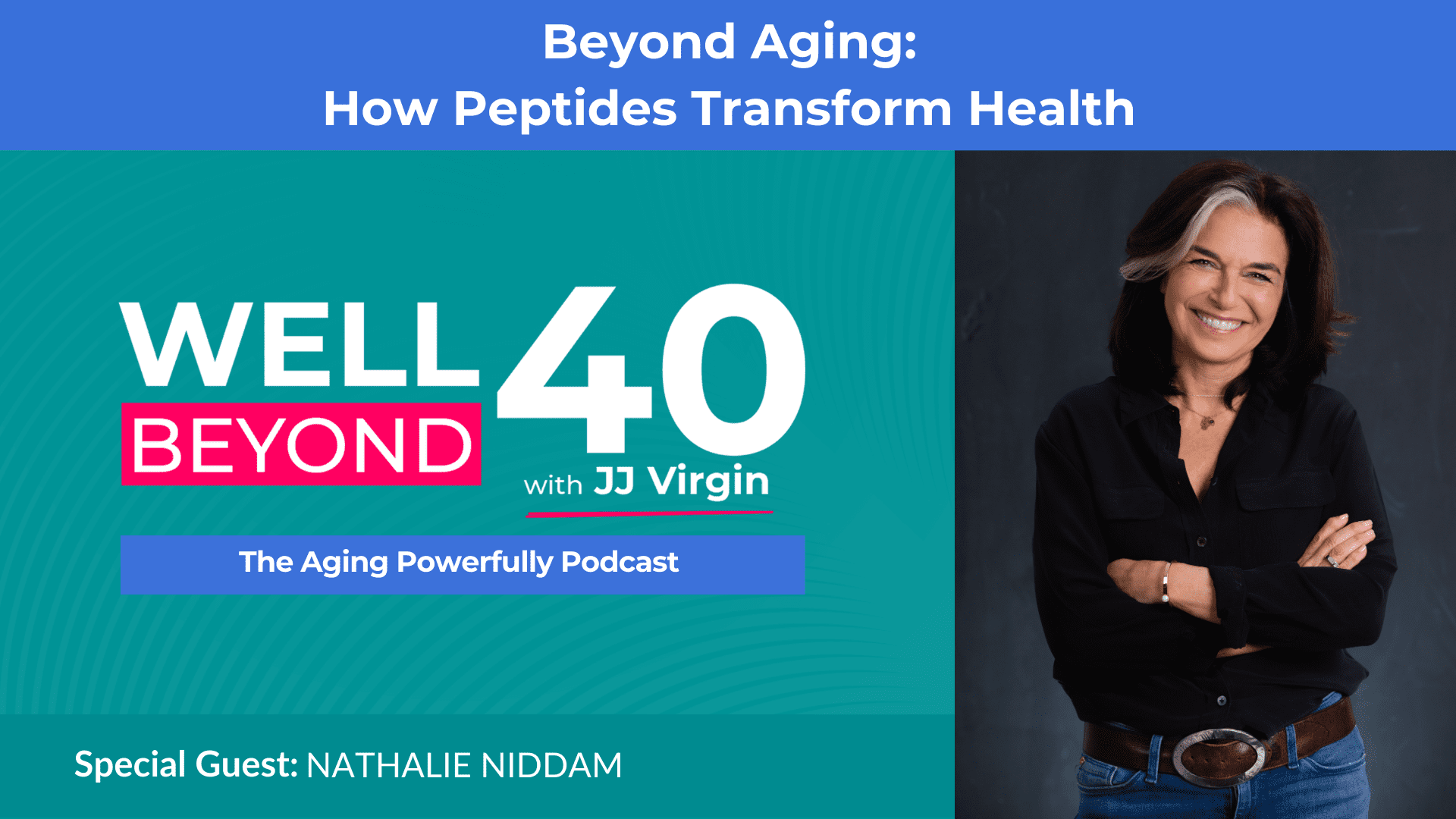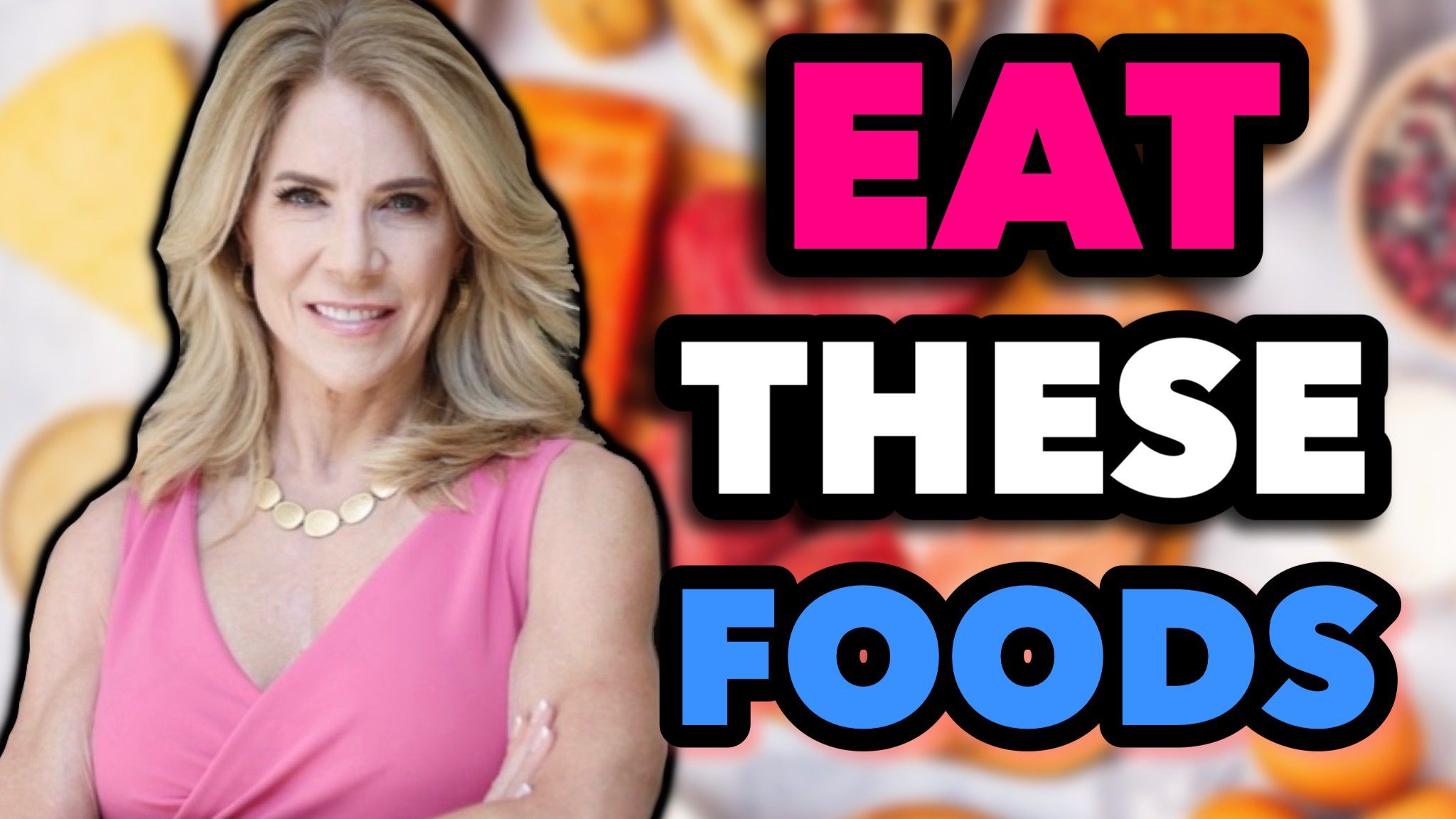Foods & Supplements to Naturally Balance Hormones in Menopause
In this episode, we take a critical look at the Women’s Health Initiative (WHI) study and its long-lasting impact on the perception of hormone replacement therapy (HRT). We delve into why the WHI study led to many years of misguided, fear-driven medical advice regarding HRT. This discussion sets the stage for a broader conversation on how to approach hormone health more holistically and effectively.
You’ll learn practical advice on managing hormone levels naturally, as well as how to evaluate hormone levels and recognize symptoms of imbalances in estrogen, testosterone, and progesterone.
Plus, get insight on the foods that foster hormonal health, along with the benefits of certain supplements and herbs that aid in hormone balance and detoxification. This approach not only helps in alleviating symptoms but also in maintaining long-term health and well-being during menopause and beyond.
Timestamps
00:01:25 – Why the Women’s Health Initiative led to many years of misguided, fear-driven medical advice on HRT
00:06:00 – How can you evaluate your hormone levels?
00:07:22 – Symptoms of low estrogen
00:08:20 – Symptoms of low testosterone
00:08:53 – Symptoms of low progesterone
00:10:39 – Importance of thyroid and adrenal health during menopause
00:12:40 – Foods to support hormone balance
00:13:35 – Supplements and herbs to support hormone balance and detoxification
Resources Mentioned in this episode
7-Day Eat Protein First Challenge
Reignite Wellness™ Extra Fiber
Order your own labs at YourLabWork:
Download my FREE Best Rest Sleep Cheat Sheet
Reignite Wellness™ Vitamin D Plus
If you’re dealing with menopause symptoms, listen up. Misinformation could be making you miserable and worse than that, potentially hurting your health. In this video, I’m going to refute the misinformation and give you the information you need to walk into your doctor informed so that you can make the best decision for yourself and your overall health.
All right, so this misinformation, it all started with the Women’s Health Initiative. What went wrong? Well, first of all, the Women’s Health Initiative used a specific combination of hormone therapy called Primpro, which consisted of synthetic estrogen and progestin. Now, some critics argue that the results might not apply to other forms of HRT, such as estrogen only therapy.
And here’s the other issue. They used oral estrogen, and oral estrogen has been shown to be problematic. And isn’t that the Used by most of the functional medicine doctors I know, in fact, any of them. They do pellets, or patches, or shots, or cream, or trochees. So let’s get into the study. This was 2002 when this was abruptly halted because the preliminary data showed an increased risk of breast cancer amongst women taking a combination of estrogen and progestin as part of their HRT regimen.
So this decision to stop the study early due to safety concerns was like this huge media outburst and caused all this alarm among women using HRT. And understandably, it’s like increase in breast cancer of 26%, except when you dig into the research of this 26%, It was a relative risk increase, which means it was a percentage increase in the existing risk rather than the absolute risk increase.
And, when it was unpacked, you know what it turned out to be? That there was one more breast cancer case in the HRT group versus the non HRT group. One person. That was it. That was why this whole thing was halted. And when they analyzed it further, there was a bit of a more nuanced picture. While there was an increase in relative risk of breast cancer associated with HRT, that one person, the absolute risk was relatively small.
Critics estimate that for every 10,000 women taking combination HRT for a year, now remember, this was synthetic too. Not the type that the functional medicine doctors are using now. There’d be an additional eight cases of breast cancer. A couple other things that went on. The study evaluated the effects of HRT over a really short period, about five years, which really didn’t give it much time to assess this thing accurately.
And the bigger important thing was the participants in the study were older women. The average age was 63 years old, which I would not say is old, but the important thing was this is when they were starting HRT. And that means that they’d lost a lot of years of protection that HRT could have given. They were likely off of hormones for 10 years.
So what was that doing at the time for their cardiovascular system, their bone health? their brain health and the study and the way it was reported in the media. Basically, it basically took out a generation of women and worse than that, it still seems to live on. So hopefully you’ll look at this. And I did a well beyond 40 podcast, really unpacking the whole WHI study and all of the issues with it.
And including the way that kind of they lied with statistics, the media blew it up, and the fact that they started, they used synthetics, and they started with women 10 years post menopausal. Like, there are just a lot of issues with it. And, you know, I had one woman DM me and she goes, I’m 65 and is it too late for me?
And I feel like I’m really lost. And then another woman who came up to me, I was speaking at an event, and she goes, you know, I’m done doing everything that you talk about. I’m exercising, lifting heavy things. I’m eating protein first, and I’m eating ideal amounts of protein. I’m doing good recovery. I’m sleeping well.
I’m managing stress. I cannot lose the weight. Turns out, Lower estrogen, and of course you go through menopause and your estrogen is basically very, very, very low. You’re producing what you can produce through your adrenals, but your estrogen’s very low, right? Estrogen’s needed to burn fat. Estrogen’s needed to build muscle.
And estrogen’s needed for a good healthy metabolism. In fact, it’s estimated that when you dump your, your estrogen, you lower your metabolism by about 200 calories a day. So this woman comes in, she goes, I can’t lose the weight. No matter what I try and she goes, I don’t want to go on hormones. I want to do this naturally.
And I’m like, well, but hormones are natural when you think about this. Because you’re giving your back, what it, your body, what it had naturally. And ideally, When
you do it well, you don’t give too much. It’s not like more is better, more is deadly, right? It’s what you need. It’s physiologic dosing.
It’s matching the dose and the form to what you need and checking your levels, just like you would with anything else. You know, my colleague, Dr. Alan Christianson, always says, test, don’t guess. And we should do the same thing with HRT, but the idea that it’s, it’s the same as these. It’s like some big scary drug.
No, it’s, it’s, it’s, it’s a hormone. And a hormone is a signaling molecule. It’s not like it’s not evil, but, but the way it was reported, it’s like, oh my gosh, it’s this big scary thing. And I think a lot of women got really scared off of it. And then they, you know, they’re like, oh, I can’t go on hormones. I’m going to do this naturally.
Hide Transcript

 Subscribe to our show
Subscribe to our show 




